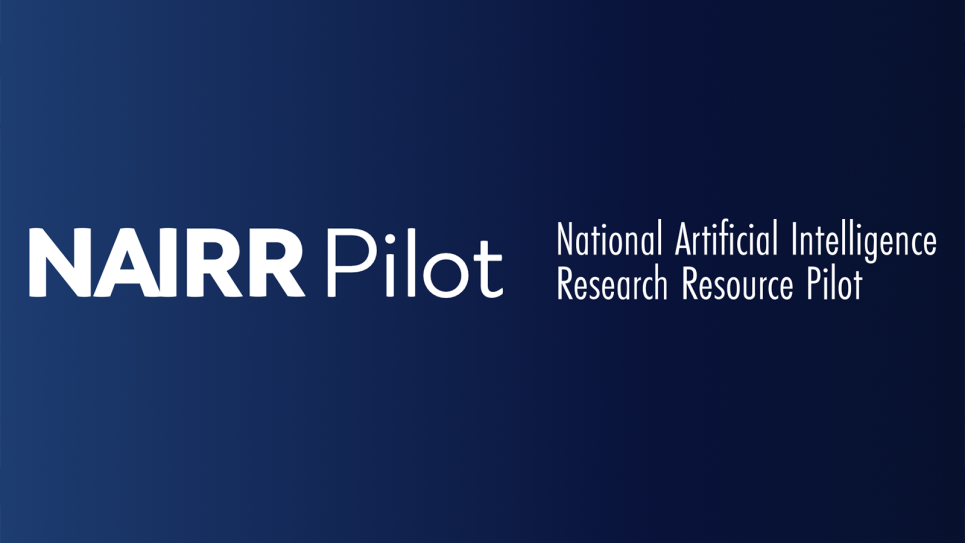
Argonne to support new AI for science projects as part of the National AI Research Resource Pilot
Researchers will use the ALCF AI Testbed to build AI surrogate models for large-scale simulations, develop tools for climate research, and advance the use of trustworthy AI for science
The U.S. Department of Energy’s (DOE) Argonne National Laboratory will support three innovative artificial intelligence (AI)-driven science projects as part of the first round of awards from the National Artificial Intelligence Research Resource (NAIRR) Pilot.
Led by the National Science Foundation (NSF) in collaboration with DOE and several partners, the NAIRR Pilot aims to provide researchers and students with expanded access to key AI resources and data. NAIRR’s ultimate goal is to develop a shared national research infrastructure that will help advance safe, secure and trustworthy AI for science.
The three Argonne-supported NAIRR projects were among 35 total projects awarded computing time on NSF and DOE computing systems, including the Argonne Leadership Computing Facility’s (ALCF) AI Testbed. With advanced capabilities for AI and data-intensive tasks, the ALCF AI Testbed systems enable researchers to explore and advance the use of novel AI applications for science. The ALCF, a DOE Office of Science user facility, is currently offering access to its Cerebras, Graphcore, Groq and SambaNova systems through both the NAIRR Pilot and the ALCF Director’s Discretionary program, which accepts proposals year-round.
“Contributing to the NAIRR Pilot is a tremendous opportunity that aligns with our mission to provide world-class AI resources and expertise in support of open science,” said Katherine Riley, ALCF director of science. “By offering access to our AI Testbed, we’re excited to help grow and support the community of researchers who can harness the power of AI to solve challenges in science and engineering.”
Here are brief summaries of the three NAIRR projects using ALCF AI Testbed systems:
Building Reliable and Secure AI Surrogates for Large-Scale Scientific Applications with Portability Performance Analysis
Project lead: Wenqian Dong, Florida International University
This project will develop AI models to help speed up large-scale scientific simulations. Known as AI surrogates, these models are designed to replace the most time-intensive parts of simulations, enabling them to run more quickly and with less computing power. Their work aims to enhance simulations for diverse fields such as climate science and renewable energy systems.
Developing Trustworthy, Robust AI Models for Science Using Privacy Preserving Federated Learning
Project lead: Ravi Madduri, Argonne National Laboratory
With this project, researchers will explore the use of federated learning to advance the development of trustworthy AI models for science. Federated learning is a method that allows collaborators to train AI models together without having to share sensitive data. The NAIRR project will enable the team to evaluate various federation strategies, generate performance benchmarks and address policy issues related to federated learning.
Developing a Benchmark Hydrologic Dataset and a Fast AI Surrogate Model for Assessing Climate Impacts on Mountainous Hillslopes
Project lead: Lijing Wang, University of Connecticut
This project will simulate the movement and behavior of water across 2,000 mountain slopes under various climate scenarios. The team’s simulations will result in an AI-ready dataset that can be used for additional studies involving the water cycle’s impact on climate. They will also develop AI surrogate models to enable more rapid forecasting, supporting water resource management and climate impact assessments.